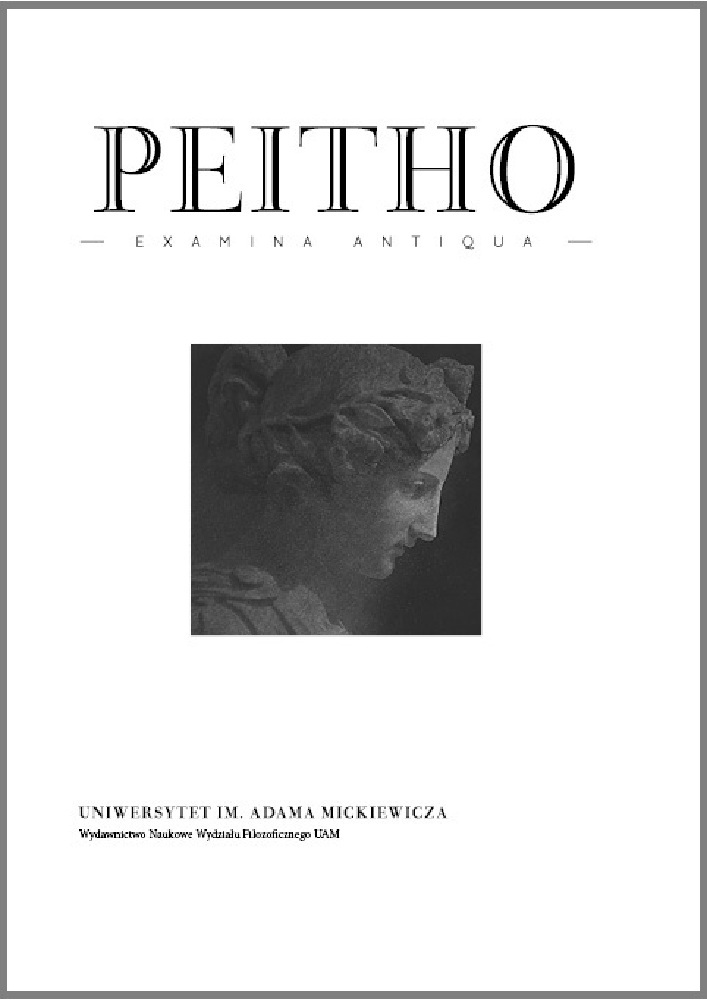Abstract
According to Renan, the day of Marcus Aurelius’ death could be considered as the decisive moment in the downfall of the ancient civilization. He, thus, wonders: “If Marcus Aurelius, the unique emperor-philosopher, did not succeed in saving the world, who else, then, could have saved it?” He notes that the emperor’s death was followed by the succession to the throne of his corrupted son, Commodus, and his friends, who all were all ignorant. Renan observes that the emperor’s kindness could not have prevented the unfortunate fate that befell the Roman Empire after his death. What we have here is the perennial problem, already established in Plato, regarding the role of the philosopher-king in establishing a good state and educating good citizens. However, the case of Marcus Aurelius, as demonstrated by Renan in his book, shows the inability of philosophy to serve the real needs, which ultimately leads to disastrous and irreparable consequences. The present paper attempts to reconstruct the reasons for the unsuccessful application of philosophy, especially the philosophy of the Hellenistic era, to the administrative system of the Roman Empire. It is argued that the failure is mainly due to political, religious and cultural problems.
References
Arnim, H. von (coll.), 1964, Stoicorum veterum fragmenta, vol. 1–4, Stuttgart.
Boudon, V., 2005, “Galien de Pergame”, in: Dictionnaire des Philosophes antiques, vol. III, Paris, pp. 440–466.
Buldry, H. C., 1959, “Zeno’s Ideal State”, Journal of Hellenic Studies 79, pp. 3–15.
Caujolle-Ζaslawsky, F., 1978, ”Le système stoicien et la paremphasis”, in: J. Βrunschwig (ed.),Les Stoïciens et leur logique, Actes du Colloque de Chantilly, 18–22 septembre 1976, Paris, pp. 425–448.
Dailly, R., Effenterre H. van, 1954, “Le cas de Marc Aurèle, Essai de psychosomatique historique”, Revue des études anciennes 56, pp. 347–365.
Daraki, M., 1989, Une religiosité sans dieu. Essai sur les stoïciens d’Athènes et saint Augustin, Paris.
Dodds, E. R., 1979, Païens et chrétiens dans un âge d’angoisse, tr. fr. H.-D. Saffry, Paris.
Dragona-Monachou, M., 2018, “La notion de l’héxis chez Aristote (en grec)”; article à paraître dans les Actes du Colloque Aristote et la médicine, 17 mai 2017, Athènes.
Gill, C., 20073, “Stoic Writers of the Imperial Era”, in: C. Rowe, M. Schofield (eds.), The Cambridge History of Greek and Roman Political Thought, Cambridge, pp. 597–615.
Gould, J. B., 1971, The Philosophy of Chrysippus, Leiden.
Gourevitsh, D., 2005, “The Galenic Plague: a Breakdown of the Imperial Pathocoenosis and Longue Durée”, History and Philosophy of the Life Sciences 27, pp. 57–69.
Grimal, P., 1979, Sénèque, ou la conscience de l’Empire, Paris.
Hadot, P., 19772, La citadelle intérieure. Introduction aux Pensées de Marc Aurèle, Paris.
Hadot, P., 2002, Exercices spirituels et philosophie antique, Paris.
Lousao, A., 2006, “Stoïcisme et politique”, sur le site internet, publié en 2006.11.11, http://etudespolitiquesinternationales.blogspot.com/2006/11/la-politique-selon-les-stociens.html.
Luccioni, J., 1958, La pensée politique de Platon, Paris.
Momigliano, A., 1969, Seneca, between Political and Contemplative Life, Rome.
Ogereau, F., 20022, Essai sur le système philosophique des Stoïciens, Paris.
Perrotta, G., 1946, Storia della Letteratura Greca, vol. 2, Milano.
Pigeaud, J., 20063, La maladie de l’âme. Étude sur la relation de l’âme et du corps dans la tradition médico-philosophique antique, Paris.
Renan, E., 1882, Histoire des Origines du Christianisme, Livre 7: Marc Aurèle et la fin du monde Antique, Paris.
Romeyer Dherbey, G., 1999, La parole archaïque, Paris.
Schuhl, P.-M., 1962, Les Stoïciens, Paris.
License
Peitho provides immediate open access to its content on the principle that making research freely available to the public supports a greater global exchange of knowledge.
